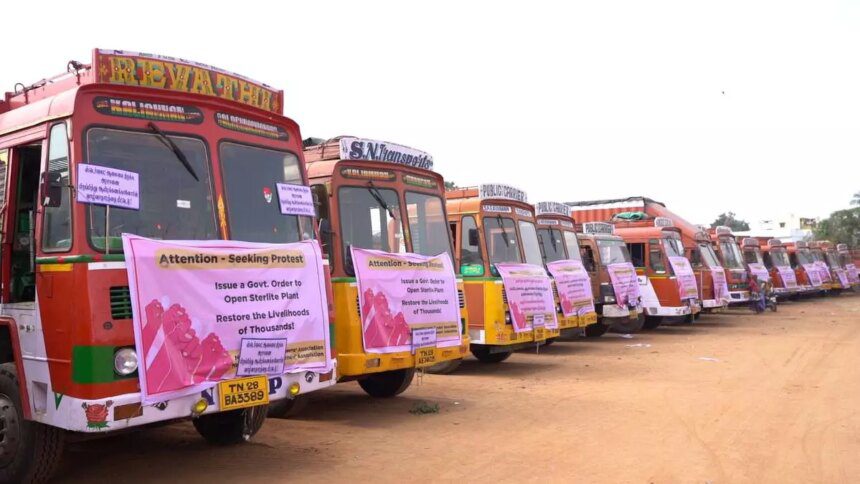The Namakkal Lorry Owners’ Association and Namakkal Trailer Owners’ Association convened a protest on Monday to bring attention to the severe consequences facing the freight and logistics sector due to the shutdown of the Sterlite Copper plant in Thoothukudi. The local trucking community in Namakkal played a crucial role in supplying trucks and trailers to support the plant’s operations during its active years.
The copper smelting facility was closed in 2018 after a prolonged protest from community members who claimed that the plant contributed to pollution and posed significant health risks.
This closure has had a far-reaching impact not just on the transportation sector but also on the broader local economy. Approximately 6,500 trucks were directly dependent on the plant’s activities, with over 430 trucks needed each day to transport nearly 9,000 tonnes of materials produced by Sterlite Copper. K. Arul, President of the Namakkal Trailer Lorry Owners Association, highlighted that the shutdown has devastated countless families and resulted in enormous economic losses.
The protest saw participation from around 500 individuals, including truck owners, drivers, and support staff, alongside more than 150 vehicles. They expressed concerns regarding the survival of numerous drivers, helpers, and business operators, whose livelihoods are threatened by decreased opportunities and unsustainable working conditions.
During the plant’s operational period, over 1,000 trucks were on the road daily, providing essential income. However, many lorry owners have had to adapt by becoming drivers. The closure has left drivers, helpers, and their families grappling with unemployment and financial difficulties. According to reports, the daily financial loss exceeds ₹10 crore, burdening thousands with debts and deteriorating living standards.
Decreased transportation services are also disrupting inter-state trade and affecting industries that depend on reliable supply chains. In light of this situation, there is a call for a special Government Order aimed at ensuring the Sterlite plant operates under strict oversight. This would involve implementing effective emission control measures, akin to those in the trucking sector, and employing advanced technologies to reduce environmental impacts.










